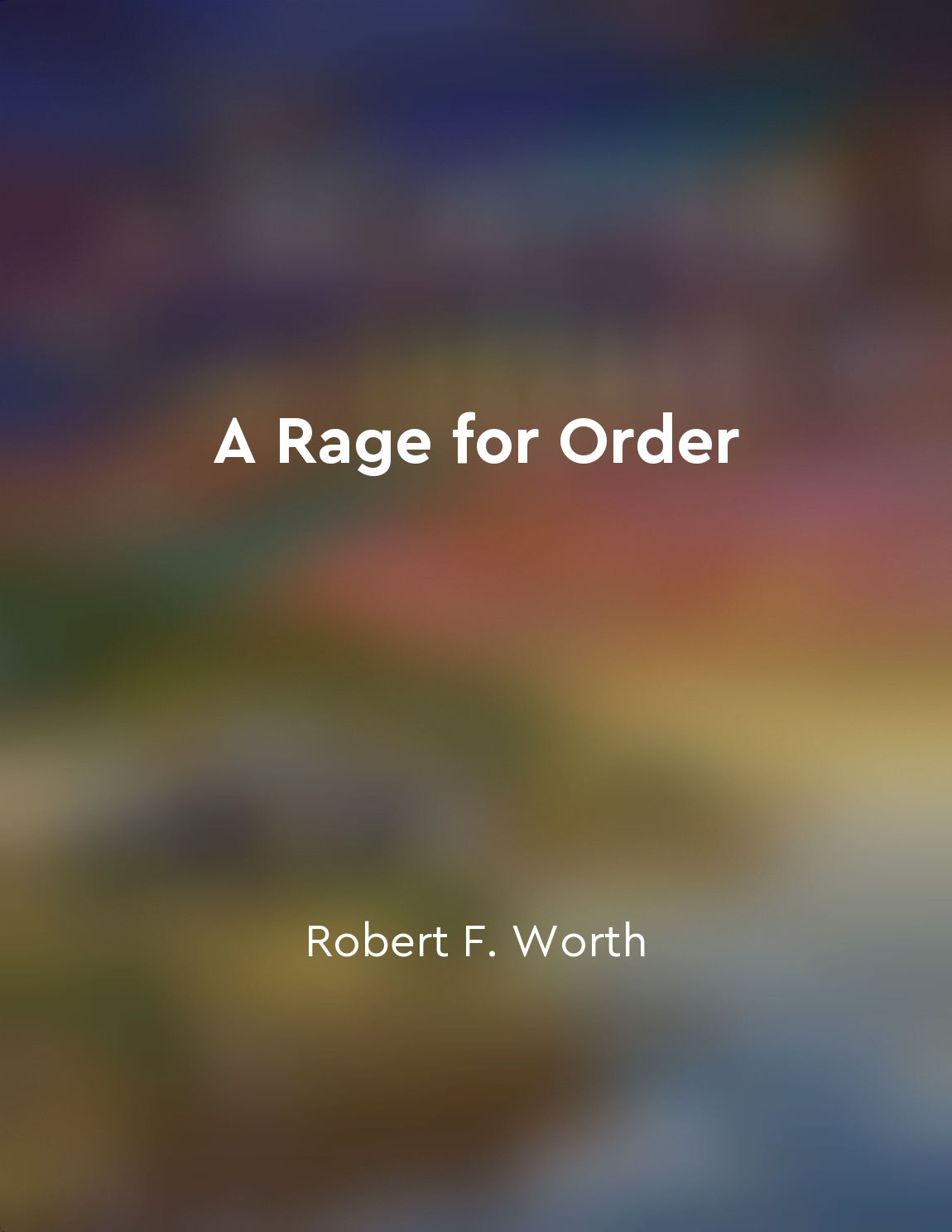Engaging in acts of resistance is necessary to defend democracy from "summary" of Democracy Matters by Cornel West
Engaging in acts of resistance is essential for the preservation of democracy. This is because democracy is constantly under threat from various forces that seek to undermine its core principles. Without active resistance, these forces can slowly erode the foundations of democracy, leading to its eventual collapse. Resistance is not merely a reaction to specific instances of injustice or oppression, but a proactive stance against any form of tyranny or authoritarianism. It is a way of asserting one's agency and refusing to be complicit in systems that perpetuate inequality and injustice. By engaging in acts of resistance, individuals can hold those in power accountable and demand transparency and accountability in governance. Moreover, resistance is a way of reclaiming power and agency in a society that often marginalizes and disempowers certain groups of people. It is a means of challenging the status quo and pushing for a more inclusive and equitable society. Through resistance, individuals can mobilize others, build solidarity, and effect meaningful change in their communities. While resistance may be met with resistance from those in power, it is crucial to remember that democracy is a continuous struggle that requires constant vigilance and active participation. By engaging in acts of resistance, individuals can contribute to the defense of democracy and ensure that the principles of freedom, equality, and justice are upheld. In this way, resistance becomes not just a means of protest, but a necessary tool for the preservation of democracy.Similar Posts

Economic repercussions felt
The economic repercussions of World War Two were deeply felt across the globe. The war brought about significant changes in the...
Totalitarianism is fueled by the destruction of the public realm
Totalitarianism thrives on the erosion of the public sphere, where individuals come together to engage in political discourse a...
Conflict resolution skills can be taught from a young age
From a young age, children can be taught the skills necessary to resolve conflicts peacefully. By instilling in them the values...
Assassination and bribery are common tactics
Assassination and bribery are common tactics used in the world of economic hit men. These tactics are often employed to ensure ...
Unity among colonists is crucial
The colonists must realize that their strength lies in their unity. Divided they are weak, but united they can achieve great th...

Local grievances festered unresolved
Robert F. Worth vividly portrays a situation where local grievances within a society are left to fester without any resolution ...
Economic hit men manipulate developing countries
The manipulation of developing countries by economic hit men is a strategic tool used by powerful corporations and governments ...
The environment is under threat
The environment is under threat. The signs of this crisis are everywhere. The polar ice caps are melting, seas are rising, and ...
